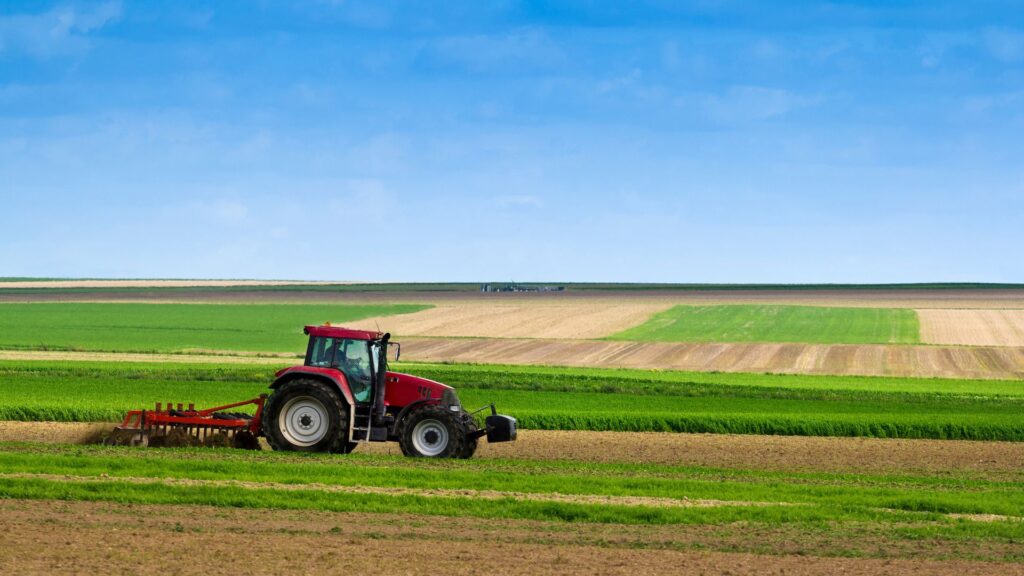
In the vast and ever-evolving landscape of agriculture, success hinges on more than just planting seeds and hoping for favorable weather. It requires strategic thinking, careful planning, and adaptability in the face of challenges. Whether you’re a seasoned farmer or a newcomer to the agricultural sector, these essential tips will provide the strategic guidance needed to thrive in the industry.
The agriculture industry plays a pivotal role in providing sustenance to the world’s population. However, with growing competition, fluctuating markets, and environmental concerns, agricultural businesses must embrace strategic guidance to navigate these complexities effectively.
- Assessing Your Current Position
- Setting Clear Objectives
- Market Research and Trends
- Sustainable Agriculture Practices
- Financial Management
- Technology Integration
- Supply Chain Optimization
- Human Resource Management
- Risk Management
- FAQ’s
- How can agricultural businesses stay updated on market trends and emerging technologies?
- What role does risk management play in strategic guidance for agricultural businesses?
- What are some common challenges that agricultural businesses face when implementing strategic guidance?
- How can small-scale agricultural businesses benefit from strategic guidance?
- Is sustainable agriculture a viable strategy for long-term success in the industry?
Assessing Your Current Position

Before charting a course for the future, it’s crucial to understand where you currently stand. Conduct a thorough evaluation of your agricultural business. Identify strengths that can be leveraged, weaknesses that need improvement, opportunities to explore, and threats to mitigate.
Setting Clear Objectives
Setting clear and achievable objectives is the cornerstone of strategic planning. Set quantifiable targets that support your long-term vision. These objectives will serve as your guiding light throughout your journey in the agricultural sector.
Market Research and Trends
Agricultural businesses must keep their fingers on the pulse of market trends. Regularly update your knowledge about the latest developments in the agricultural sector. Conduct market research to anticipate demand shifts, emerging consumer preferences, and new technologies.
Sustainable Agriculture Practices
In an age of environmental consciousness, sustainable agriculture is essential. Embrace eco-friendly and ethical practices that not only protect the environment but also resonate with conscientious consumers.
Financial Management
Effective financial management is critical. Create and manage budgets diligently, and keep a close eye on cash flow. Consider investment strategies that align with your growth objectives and ensure the financial health of your agricultural business.
Technology Integration
The integration of technology can revolutionize your agricultural operations. From precision farming techniques to IoT devices and data analytics, technology can enhance efficiency, reduce waste, and improve overall productivity.
Supply Chain Optimization

Streamlining your supply chain is essential for minimizing costs and ensuring the quality and consistency of your agricultural products. Evaluate each link in your supply chain and look for opportunities to optimize processes.
Human Resource Management
Your agricultural business is only as strong as the team behind it. Invest in hiring, training, and retaining skilled farm workers. Building a motivated and knowledgeable team is crucial for long-term success.
Risk Management
Agriculture is inherently risky, with factors like weather, pests, and market fluctuations. Develop comprehensive risk management strategies to identify, assess, and mitigate potential risks to your business.

Success in agriculture goes beyond planting and harvesting. It requires strategic thinking, adaptability, and a commitment to continuous improvement. By assessing your current position, setting clear objectives, staying informed about market trends, embracing sustainability, managing finances wisely, integrating technology, optimizing your supply chain, nurturing your team, and mitigating risks, your agricultural business can thrive even in the face of challenges.
FAQ’s
How can agricultural businesses stay updated on market trends and emerging technologies?
Staying updated on market trends and technologies is crucial. To achieve this, agricultural businesses can attend industry conferences, subscribe to agricultural publications, join industry associations, and network with peers. Additionally, leveraging online resources, market research reports, and consulting experts can provide valuable insights into evolving trends and technologies.
What role does risk management play in strategic guidance for agricultural businesses?
Risk management is integral to strategic guidance in agriculture. It entails detecting risks, assessing their impact, and developing mitigation or transfer measures. By proactively addressing risks related to weather, market fluctuations, pests, and other factors, agricultural businesses can protect their investments and ensure more stable long-term performance.
What are some common challenges that agricultural businesses face when implementing strategic guidance?
Agricultural businesses often encounter challenges such as unpredictable weather patterns, market volatility, changing consumer preferences, and regulatory changes. These factors can make long-term planning and strategic execution more complex. However, with effective strategic guidance, businesses can better anticipate and adapt to these challenges.
How can small-scale agricultural businesses benefit from strategic guidance?
Small-scale agricultural businesses can benefit significantly from strategic guidance. It helps them prioritize resources, identify niche markets, optimize their operations for efficiency, and access funding opportunities. Strategic guidance enables them to compete effectively and sustainably in the agricultural sector.
Is sustainable agriculture a viable strategy for long-term success in the industry?
Yes, sustainable agriculture is not only a viable strategy but also essential for long-term success. Sustainable techniques improve soil health, reduce environmental impact, and meet consumer demand for eco-friendly products. Additionally, many governments and consumers incentivize and support sustainable agricultural practices.
